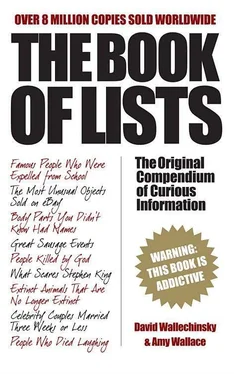SIR STANLEY MATTHEWS’ 11 GREATEST FOOTBALL PLAYERS
Born in 1915, British footballer Sir Stanley Matthews died after a brief illness in February 2000. He is considered perhaps the greatest dribbler in English soccer history. During his unusually long professional career, he played for Stoke City and Blackpool, competing in 752 matches, including 54 international matches. He was the first British player to receive a knighthood. Though he was thin and frail-looking, his skill was such that he was dubbed ‘The Wizard of the Dribble’. He first played professionally at 17, and played his last game five days after his 50th birthday, far older than his fellow players. Also known as ‘The First Gentleman of Soccer’, Matthews was never once booked or sent off by a referee during his 33-year career. After his retirement, he went on to coach a team of Bantu players in South Africa, then coached in Canada and Australia. More than 35,000 fans attended his retirement game, and when he died the flag flew at half-mast in his home football stadiums. A minute’s silence was observed before every game for a week after his passing. Sir Stanley donated most of his memorabilia to decorate the walls of a restaurant at the Stoke football club. He contributed this list to The Book of Lists in 1995.
• Johann Cruyff, Netherlands
• Diego Maradona, Argentina
• Alfredo Di Stefano, Spain
• Garrincha, Brazil
• Ferenc Puskas, Hungary
• George Best, Northern Ireland
• Pelé, Brazil
• Eusébio, Portugal
• Peter Doherty, Ireland
• Tom Finney, England
• Frank Swift, England
RICHARD WILLIAMS’ 11 FAVOURITE GOALS
Richard Williams is a well-known British journalist who writes about two of the great loves of his life — sport and music. Born in Sheffield and brought up in Nottinghamshire, he worked on Melody Maker in the late 1960s and was editor of the paper in the late 1970s. He has written about sport for various national newspapers and is now chief sports writer for the Guardian . His published works include books on Phil Spector, Bob Dylan, Miles Davis and Formula 1 racing. His most recent book is The Last Road Race (2004).
‘A great goal can be the product of patient teamwork or a moment of individual inspiration. To be truly remarkable, however, it needs a suitable context and a meaning that transcends the moment. Puskas’ goal at Wembley, for example, taught England a lesson about how far they had fallen in the hierarchy of world football, while Law’s strike against his old club was full of tragic resonance. Here are 11 goals that mean something special. Five of them I was there to see (Zidane, Massaro, Storey-Moore, Bergkamp, Owen). Three of them were scored in black and white (Puskas, Di Stefano, Pelé). Storey-Moore’s is the only one that was not captured by the cameras, so you will have to take my word for its epic quality. Or you could ask Bob Wilson, who remembers it extremely well.’
JAIRZINHO for Brazil v England in the 1970 World Cup at the Jalisco stadium, Guadalajara.
To decide an enthralling match between two contrasting but well-matched sides, one defending its title and the other on the way to regaining it, a goal fit for a final. After a build-up on the left, involving Rivelino and Paulo Cesar, Tostao retrieves his own blocked shot, fights his way past Alan Ball, Bobby Moore and Tommy Wright, and turns the ball inside to Pelé, who feints like a matador to transfix the remainder of the defence before pushing the ball sideways for the onrushing Jairzinho to smash his shot past Gordon Banks from six yards, continuing the run that will make him the only man in history to score in every round of the World Cup finals.
Result: Brazil 1, England 0.
ZINEDINE ZIDANE for Real Madrid v Bayer Leverkusen in the 2002 European Cup final at Hampden Park, Glasgow.
At 1–1 in a match that has yet to catch fire, the players are listening for the half-time whistle when Roberto Carlos dinks a pass inside to Zinedine Zidane. For a split-second, as it realises what the French genius is about to attempt, the stadium holds its breath. And then, from a range of more than 30 yards, Zidane swings his left leg with that balletic grace and brings his boot round to meet the ball with such precision that it flies in a perfect arc, leaving Hans-Jorg Butt helpless as it passes just beneath his crossbar.
Result: Real Madrid 2, Bayer Leverkusen 1.
DANIELE MASSARO for AC Milan v Barcelona in the 1994 European Cup final in the Olympic stadium, Athens.
Collecting an aimless ball from Hristo Stoichkov in the second minute of first-half stoppage time, Sebastiano Rossi throws the ball out to Christian Panucci, Milan’s young left-back. In the next 47 seconds there will be 13 passes of every variety imaginable, including a perfectly judged back-heel, before Daniele Massaro meets Roberto Donadoni’s cut-back with a lethal strike from 15 yards. The others contributing the move are Dejan Savicevic, Zvonimir Boban, Demetrio Albertini, Paolo Maldini, Filippo Galli and Mauro Tassotti.
Result: AC Milan 4, Barcelona 0.
FERENC PUSKAS for Hungary v England at Wembley stadium in 1953.
The left-footed drag-back that fooled not only Billy Wright, England’s redoubtable captain, but an entire nation preceded one of the Galloping Major’s most sublime goals, part of a thrashing that left a permanent scar on the soul of the game’s inventors.
Result: Hungary 6, England 3.
DIEGO MARADONA for Argentina v Belgium in the 1986
World Cup semi-final in the Azteca stadium, Mexico City. Like his second goal against England a few days earlier, but even better since he had not first indulged in a bout of cheating. Again he attacked from the right, paralysing an entire defence before delivering the coup de grace.
Result: Argentina 2, Belgium 0.
PELÉ for Brazil v Sweden in the 1958 World Cup final in Stockholm.
Sweden took the lead after four minutes, the fools. The goal that finished them off came 10 minutes into the second half, when the 18-year-old Pelé received a ball from the left, flicked it up over his own head, spun round and volleyed the dropping ball past Karl Svensson, the Swedish keeper.
Result: Brazil 5, Sweden 2.
IAN STOREY-MOORE for Nottingham Forest v Arsenal in Division One, December 27, 1971.
Peter Grummitt rolls the ball to Tommy Gemmell, who plays a short ball to Storey-Moore. From deep in his own half the left-winger sets off, beating the entire Arsenal defence — Bob McNab, Peter Simpson, Frank McLintock and Peter Storey — on a dazzling 75-yard run before clipping the ball past Bob Wilson. Six weeks later the Daily Express is calling him ‘the gold-plated hyphen’ as he moves to Manchester United for £200,000.
Result: Nottingham Forest 1, Arsenal 1.
DENNIS BERGKAMP for Holland v Argentina in the 1998
World Cup quarter-final in the Stade Velodrome, Marseilles. Barely half a minute of normal time remains, with the score at 1–1, when Bergkamp controls Frank De Boer’s long, high pass with a single delicate touch, turns inside Roberto Ayala and uses the outside of his right boot to drive the ball past Carlos Roa. Minimalist perfection.
Result: Holland 2, Argentina 1.
MICHAEL OWEN for England v Argentina in the 1998 World Cup in the Stade Geoffroy-Guichard, Saint-Etienne.
After an early goal for each side, the match is boiling when the 18-year-old Owen latches onto the ball in the 15th minute, changes direction twice as he beats three defenders, and finally strikes a wonderful shot past Roa.
Читать дальше












